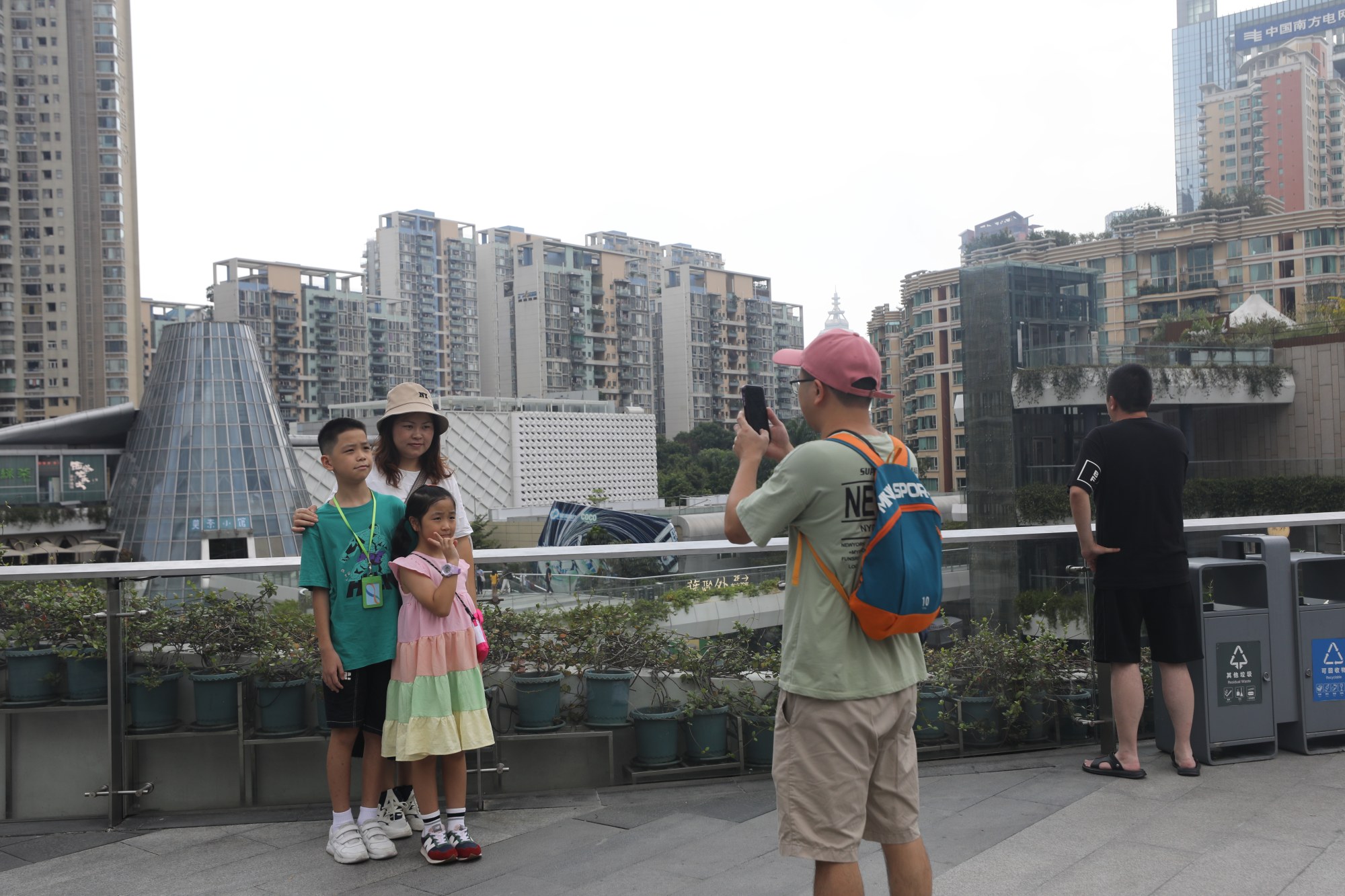[ad_1]
Hongkongers have been flocking across the border for leisure, shopping and dining, stretching their Hong Kong dollar which has strengthened against the yuan.
The trend has sparked concern from the city’s retail and catering sectors, which are still struggling with their post-pandemic recovery.
Hongkongers made nearly 72 million outbound trips in 2023, with almost three in four heading to mainland cities, statistics showed.
Hongkongers queue for more than 2 hours as they flock to new Shenzhen Costco
Hongkongers queue for more than 2 hours as they flock to new Shenzhen Costco
But economists cautioned that the party’s suggestion might go against Beijing’s approach for Hong Kong to be better integrated with the mainland.
Professor Stephen Cheung Yan-leung, a former president of Education University and a specialist in financial market development, said the proposal might send a wrong signal to the public if adopted.
“Hong Kong is part of China,” he said. “If the government charges its residents for going to mainland cities, what kind of signal might this send to the world? It is surely not good for integration.”

Ho Lok-sang, director and research professor of the Pan Sutong Shanghai-Hong Kong Economic Policy Research Institute at Lingnan University, said the proposal was “unacceptable”.
“It totally goes against the Greater Bay Area blueprint, which highlights the convenient flow of people, capital and goods,” he said, a reference to Beijing’s plan to develop Hong Kong, Macau and nine Guangdong cities into an economic powerhouse.
He added a departure tax would be efficient only if it was set high enough, but that would cause anger.
Hong Kong at present charges a departure tax of HK$120 per person only for air passengers, except for children under 12. The fee is normally included in ticket prices.
Alibaba’s Freshippo opens first membership-only store in Shanghai
Alibaba’s Freshippo opens first membership-only store in Shanghai
Citibank economist Adrienne Lui Chi-ngan last December said that a land and sea departure tax of HK$25 could result in total revenue of HK$2.3 billion based on about 90 million departures.
Liberal Party leader and lawmaker Tommy Cheung Yu-yan did not estimate how much the departure tax might raise and stressed that the proposal was “a temporary measure, not for a lot of money, but as a different source of revenue”.
But the legislator, who represents the catering industry and also sits on the government’s key decision-making Executive Council, refused to comment further when approached by the Post.
His party is not the first to suggest a departure tax for land and sea travellers. Two earlier proposals in 1999 and 2003 failed in the face of widespread criticism.
Political parties such as the Business and Professionals Alliance for Hong Kong and New People’s Party were sceptical of the proposal and warned it was not a good time for a new tax.
Hong Kong officials too ‘passive’ in efforts to attract mainland visitors: CY Leung
Hong Kong officials too ‘passive’ in efforts to attract mainland visitors: CY Leung
Lawmaker Duncan Chiu, who represents the innovation and technology industry, argued that a new departure tax could backfire.
“Hongkongers might think they should spend more in the mainland as they would want their trip to be worth paying the tax for,” he said.
Chan is gauging public views before his budget speech on February 28. He earlier said authorities would review public service charges that had remained the same for several years and those based on a “user-pays principle” to help trim the budget deficit.
But politicians and economists have appealed to him to consider other options instead.
Hong Kong holiday exodus as 1 million people leave city in 2 days
Hong Kong holiday exodus as 1 million people leave city in 2 days
Economist Ho and the Business and Professionals Alliance asked Chan to cancel all cooling measures imposed on the property and stock markets, to “stimulate the market for big money”.
They said previous measures announced by Chief Executive John Lee Ka-chiu, including halving the buyers’ stamp duty for non-permanent residents and for additional properties, did not go far enough.
The alliance also asked the government to turn night markets established under the “Night Vibes Hong Kong” campaign into a long-term project, as they had done well in getting Hongkongers to go out and spend.
The city’s fiscal reserve will shrink to HK$724.8 billion as of March 31 this year, from HK$834.79 billion in 2023, according to the latest estimate from accounting giant PwC.
Cheung said the government should exercise caution in its spending, especially on infrastructure projects.
“The government should prioritise infrastructure projects that can generate returns in a shorter time,” he said. “Don’t try to do them in one go and waste unnecessary resources.”
[ad_2]
Source link
